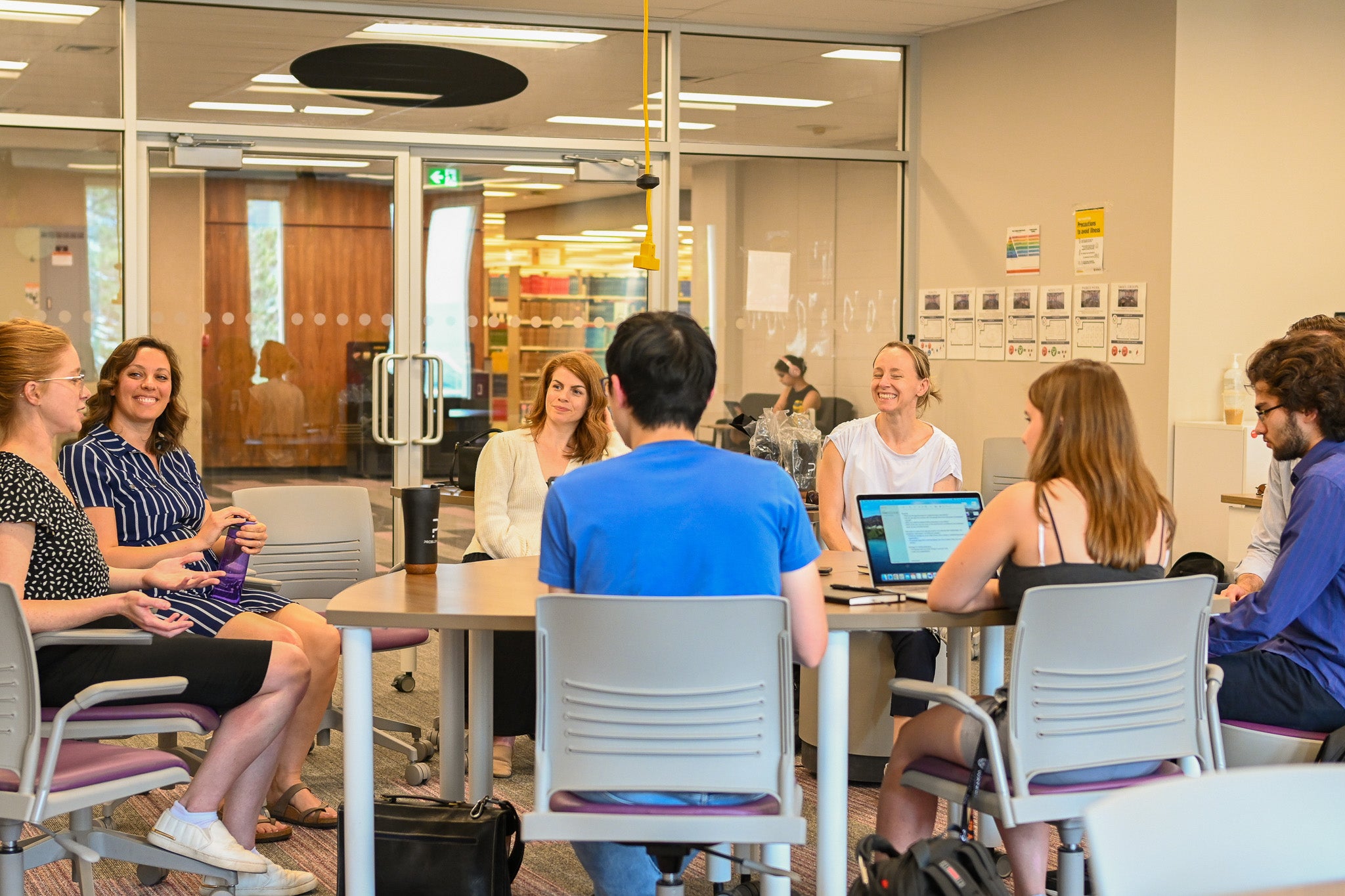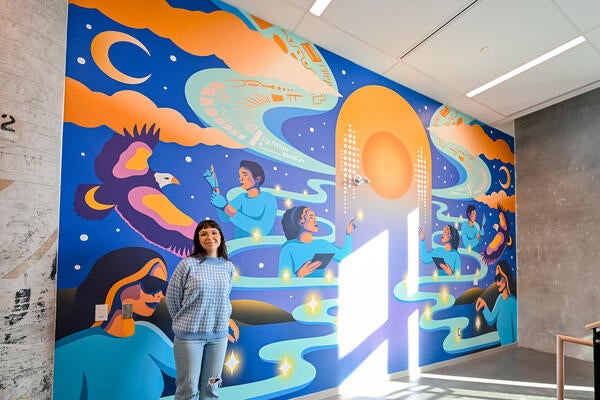
Building skills to tackle societal challenges
New Velocity program fosters students’ innovative mindset

New Velocity program fosters students’ innovative mindset
By Naomi Grosman VelocityVelocity has launched a new program called Foundations to help students develop an innovative mindset, a skill which is becoming increasingly important.
Applicable to any career, learning how to ask great questions for a deeper understanding of a problem can be a professional lifeline, in particular due to the ubiquity of large language models like ChatGPT that is giving rise to questions about the future of job opportunities.
This Spring 2023 term, students explored loneliness and other mental health challenges. These issues are afflicting young people at the highest levels since studies have started measuring them. According to the Centre for Disease Control in the U.S., 37.1 per cent of high school students say they experienced poor mental health during the COVID-19 pandemic.
“Over the past few semesters, many students have spoken to Velocity staff about the challenges related to loneliness and mental health,” says Ben Graham, Velocity’s Problem Lab manager. “Students that applied to Foundations indicated they wanted to explore this topic specifically and learn more about what can be done to address this significant challenge.”

Over the course of the eight-week program, students will attend weekly group sessions designed to actively engage them in research, problem-solving and skill-building activities. They will hear from expert guest speakers from the University and other stakeholders. Students can also access Velocity coaching from an expert in problem analysis.
Last term, the program interviewed stakeholders including Robbyn Hesch from the University's Campus Wellness department, Donna Rheams from University of Waterloo Athletics and Rosalie Wyonch, senior policy analyst at the C.D. Howe Institute, to dig deeper into the problem of loneliness and explore ways to create a sense of belonging.
Ann Gordon, an undergraduate arts and business student, says the Foundations program goes deeper than simply helping students come up with a business idea.
“Foundations gives us insight into the different steps necessary ... including steps of research, interviews and following through with the actual creation of an idea,” Gordon says. “I was personally interested in creating a sense of community as [loneliness] is something a lot of people struggle with — a commonality for many people — and [Foundations] is a good way to reach out and learn about people.”
Before joining Foundations, computer science and psychology student Amin Mojtahed says he had an anecdotal understanding of loneliness and the effects it can have on mental health.
“[Through Foundations] we have access to people who have studied data that concerns this problem, giving us a more realistic view of where the root of the problem might be,” Mojtahed says. “[The program] offers the best learning opportunity alongside other entrepreneurship ideas or concepts, and it’s not just about making profit but analyzing where a problem that matters to people exist, what causes and effects this problem and how we can tackle that.”
More than just a way to become intimately familiar with a problem area and foster an innovative mindset, Foundations students tap into a community of like-minded individuals, from peers to subject-matter experts.
“My favorite part is the ability to connect with other people through a common interest and to meet new people that are brought in as speakers,” Gordon says.
Applications are now open. Read more about Foundations and sign up or contact Ben Graham for more information.

Read more
Student teams pitch their innovative technology to secure grant funding

Read more
Many Hearts, One Mind by Indigenous artist Alanah Jewell celebrates the act of creation shared by the Land and innovators in our community

Read more
Here are the people and events behind some of this year’s most compelling Waterloo stories
The University of Waterloo acknowledges that much of our work takes place on the traditional territory of the Neutral, Anishinaabeg, and Haudenosaunee peoples. Our main campus is situated on the Haldimand Tract, the land granted to the Six Nations that includes six miles on each side of the Grand River. Our active work toward reconciliation takes place across our campuses through research, learning, teaching, and community building, and is co-ordinated within the Office of Indigenous Relations.